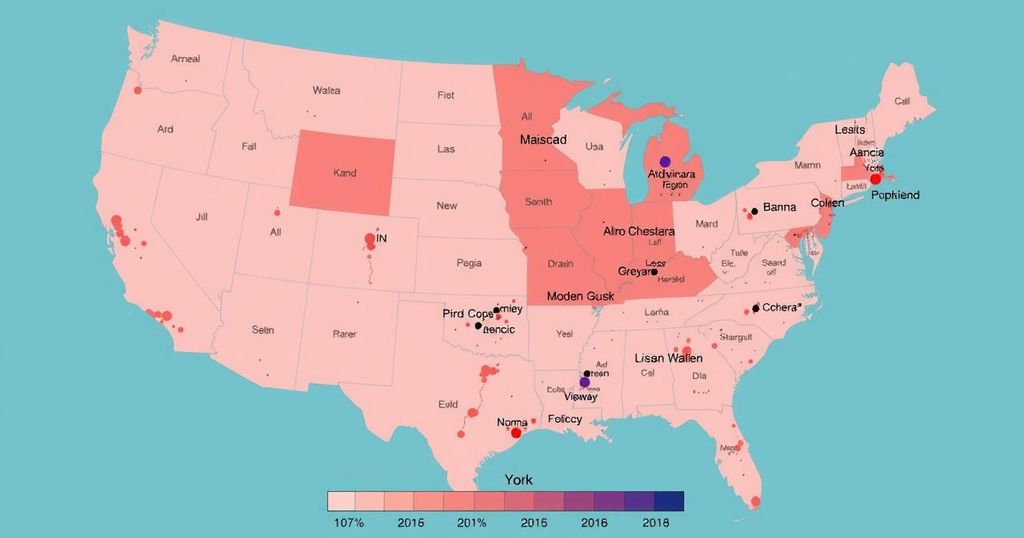The article discusses the implications of the 2024 presidential election on U.S. immigration policy, noting a significant shift in public opinion favoring decreased immigration. It addresses the legal rights of asylum seekers and the challenges they face due to administrative backlogs. The author calls for comprehensive immigration reform to address economic needs while highlighting the potential negative consequences of the new president’s promised restrictive policies.
The aftermath of the 2024 presidential election will likely reveal significant transformations in the nation’s immigration policy. A notable shift in public sentiment regarding immigration has unfolded over the past four years, with a recent Gallup poll indicating that 55 percent of Americans believe immigration should decrease, a steep rise from 28 percent in 2020. This shift is rooted in various factors, including heightened campaign rhetoric that framed immigration as an invasion. Despite these perceptions, documented movements of undocumented migrants have not been unprecedented, primarily driven by crises in nations such as Venezuela and Central American states.
Importantly, the right to asylum is enshrined in both international and domestic law, mandating that individuals facing persecution must be permitted entry to present their claims. However, the complexities of migration law mean that many applicants encounter lengthy wait times for adjudication due to significant backlogs, often resulting in delays of up to five years. Unfortunately, the benefits extended to migrants have become exaggerated by anti-immigrant narratives, further fueled by strategic transport of asylum seekers from Republican-led states to Democratic cities, bringing more visibility to the issues at hand.
The convergence of upheavals in countries such as Haiti, Ukraine, and Afghanistan within a short timeframe led to many migrants receiving Temporary Protected Status (TPS) or humanitarian parole, which are provisions available under U.S. immigration law. The public policy formulation regarding immigration is intricate, yet it is often swayed more by prevailing public opinion than by comprehensive policy evaluations. The incoming president’s campaign successfully capitalized on this confusion and leveraged immigration concerns to garner support, thereby exacerbating existing anxieties about immigration.
Given the urgent need for reform within the immigration system, which has remained largely unchanged since 1965, many sectors of the economy are in dire need of both skilled and unskilled labor as well as opportunities for family reunification. However, the prospects for significant reform appear bleak. The current administration’s promises of mass deportation and the dismantling of protections for minors brought to the U.S. as children are alarming indicators of what may ensue, inflicting untold hardships on vulnerable communities.
To truly heed the plight of migrants, it is imperative to cultivate a deeper understanding of their conditions and work towards positively shaping public opinion, particularly among legislators. By advocating for sensible reforms that align with the nation’s ethical imperatives and economic necessities, society may better serve those seeking refuge and a better life in the United States.
The article addresses the evolving landscape of U.S. immigration policy in light of the 2024 presidential election. It provides context on the significant shift in public opinion towards immigration and highlights the underlying crises driving migration. The author emphasizes the legal frameworks surrounding asylum and the long-standing need for reform in the immigration system. It outlines the challenges faced by migrants and critiques the response of political leaders and public sentiment towards immigration.
The understanding of immigration in the United States is markedly impacted by public perception, often driven by political rhetoric that does not accurately reflect reality. As the nation faces pressing needs for labor and family unity, the imperative for substantive immigration reform is underscored. The potential consequences of continued restrictive policies are dire for migrant communities. Therefore, fostering informed and compassionate public discourse is essential to navigate the future of immigration in America.
Original Source: www.miamiarch.org






